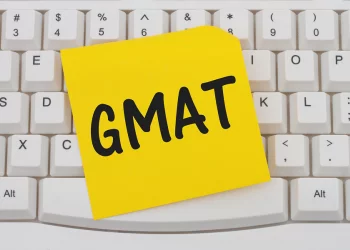
Meet Dragomir, who explains why he decided to go for an MBA and how he prepared for the GMAT exam. Whach the full interview here.
[0:09] Q: Please introduce yourself and tell us a little bit more about your academic and professional experience so far.
[0:16] A: Nice to meet you! My name is Drago, short for Dragomir. I graduated from the American University in Bulgaria in 2016 with a double major in economics and political science, and a minor in European studies. I was in the top 1% of my class and I was also a president of the biggest club at my university, so my experience there was quite diverse. Once I graduated, I spent six months in the US on a work and travel program and, subsequently, in December, I started working for my current company. It’s called Experian – it’s an analytics company. I started as a junior analyst; I have occupied three positions so far and starting from next month I’m going to be senior analytics engineer there.
[1:16] Q: Why did you decide to go for an MBA?
[1:19] A: I had never studied Business Administration in my Bachelor’s degree and I considered this a slight disadvantage. I believe I will really benefit from learning the theoretical foundations of business, but most of all it’s the practice, the practical side of things related to MBA that attracts me. And, of course, the networking that is so integral to an MBA, the people that you get to meet – this gives you a great chance to explore different industries and different cultures as well. Also, it could ultimately lead to a change in my professional life, either changing position, or even changing my field of work completely.
[2:15] Q: Have you already taken the GMAT or other exams?
[2:19] A: I took the GMAT a month ago. I scored seven hundred and ten points, also seven in the integrated reasoning and five in the analytical writing assessment.
[2:34] Q: Which was the hardest part for you to prepare during your preparation for GMAT?
[2:41] A: I can’t say there is a hardest part. The major ones, the integrated reasoning, and the math part, of course, are the most challenging sections. That’s why universities are always looking at these areas. It largely depends on the person who’s taking the test. I graduated from a mathematical high school, so the math part didn’t seem so challenging, though I scored a lot higher on the integrated reasoning. That was most probably because I graduated on a program that’s fully taught in English. I spent a lot of time in the US, but it largely depends on your skillset really. I wouldn’t say one is harder than the other.
[3:40] Q: And how did you actually prepare for the GMAT exam? Did you use tutoring, did you use any online tools, what kinds?
[3:51] A: Firstly, I think preparing for the GMAT is not a short sprint, it’s a marathon, and you need to start well in advance to prepare for the test. Personally, I prepared for six months. I started with one test, to get an idea what level I was starting from. Then I bought just two books, the official ones from previous years and read them from cover to cover. Doing a lot of prep exams really benefited me greatly. I did around 15 prep exams; this allows you to discover your weaknesses but also – and I think that this is the most important thing – to practice your timing in the exam.
[4:50] Q: Definitely. And basically, what kind of person are you? I mean, how do you prepare best for exams? Do you prefer visual or theoretical preparation beforehand? What is the best way for you to prepare for the exam?
[4:14] A: What I usually do in the way of preparation for such exams is I am to get an overview of the test. I can see the topics included either in the math section or the integrated reasoning section. I don’t think that studying theory will help you that much. It’s a lot more useful to do specific tasks, and then once you spot your weaknesses you can always go back to the theory, review it, learn it if you need to. Practice is really essential. Practice makes perfect!
[5:57] Q: Which part of the application process is most challenging for you?
[6:05] A: The most challenging and important part, first of all, and this can be time consuming, is to research thoroughly those universities you’re applying to. Once you’ve done this, I think the most challenging part is covering all the essays that you need to write, spotting the different aspects of the interview process at the different schools. On the one hand, they are kind of standardized in a way although they do differ. So that’s what I would say is the most challenging part. And, of course, the interview you’ll have at the end if you reach that far.
[6:50] Q: At what stage are you currently in your applications? Have you chosen the schools or are you still researching more information?
[6:59] A: I have conducted a lot of research already but I haven’t yet targeted specific schools. My targets are really the Top 10 schools in Europe and the Top 20 schools in the US.


Comments